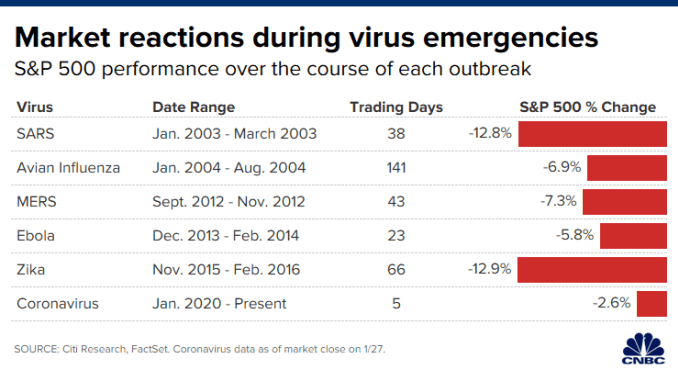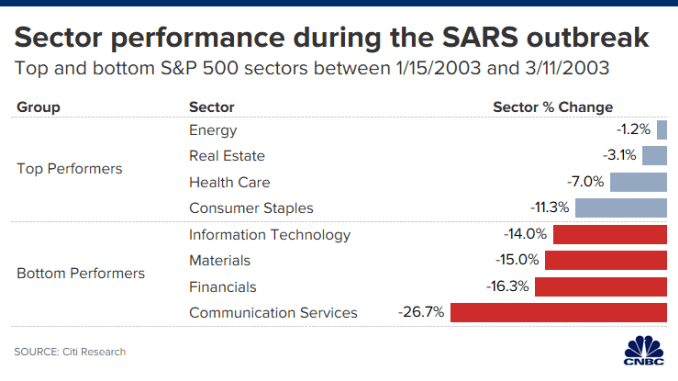U.S. Acknowledges Paper Trail on Trump’s Ukraine Role, CNN Says
ByFebruary 1, 2020, 2:01 PM CST
Justice Department acknowledges 24 emails on Trump’s thinking
Revelation comes after Senate rejects call for new witnesses

President Donald Trump Photographer: Al Drago/Bloomberg
The Justice Department, in a court filing late Friday, said it has two dozen emails related to President Donald Trump’s involvement in withholding millions of dollars in security assistance to Ukraine, CNN reported.
The filing, made in response to a lawsuit by the Center for Public Integrity, was the first official acknowledgment from the Trump administration of the existence of such emails.
The news came hours after Republicans in the Senate rejected Democrats’ efforts to call new witnesses in Trump’s impeachment trial, which was centered on the president’s attempts to pressure Ukraine into investigating former Vice President Joe Biden, a political rival, and his son Hunter.
Friday’s Senate vote, which turned back an attempt to subpoena additional documents and witnesses in the case, is expected to result in the president’s acquittal next week.
CNN said a lawyer with the White House’s Office of Management and Budget wrote to the court that the emails, dated between June and September, describe “communications by either the President, the Vice President, or the President’s immediate advisers regarding Presidential decision-making about the scope, duration, and purpose of the hold on military assistance to Ukraine.”
A variety of new information has come to light since the Democratic-led House completed its inquiry into Trump’s Ukrainian dealings in December, energizing Democrats’ efforts to call for witnesses.
That includes reports a week ago of a soon-to-be-published manuscript by John Bolton. Trump’s former national security adviser reportedly wrote that Trump directly linked the release of $391 million in aid to Ukraine to politically-motivated investigations.
Democrats have said they plan to continue inquiries into Trump once the impeachment saga ends, including a focus on his conduct in dealing with Ukraine.
Above is from: https://www.bloomberg.com/news/articles/2020-02-01/u-s-acknowledges-paper-trail-on-trump-s-ukraine-role-cnn-says
THE NATIONAL INTEREST JAN. 30, 2020
The Republican Cover-up Will Backfire. The House Can Keep Investigating Trump.
![]()
Mitch McConnell Photo: Stefani Reynolds/Bloomberg via Getty Images
Toward the end, the impeachment trial’s strategic purpose narrowed into an obsessive quest to produce evidence. Democrats have defined victory not as removal, but as winning a procedural vote to allow more testimony, especially by John Bolton. The House managers have designed their arguments not to reinforce Trump’s guilt but to underscore the need for more testimony. They seem to have given little attention to the question of whether such a victory would actually serve their larger strategic purposes at all. Republicans may have succeeded in blocking all new evidence and driving toward the rapid conclusion they seek, bu the tactical victory may well become a strategic defeat.
If the several days that have passed since the Bolton revelation have proved anything, it is just how uninterested Republicans are in holding Trump to account for his misconduct. Initially, even Trump’s staunchest supporters conceded that pressuring Ukraine to investigate Trump’s rivals would be, if true, unacceptable. (Lindsey Graham: “very disturbing”; Steve Doocy: “off-the-rails-wrong.”) As evidence of guilt accumulated, their denial that this unacceptable conduct took place narrowed to a tiny, highly specific claim: No witness testified that Trump personally ordered them to carry out a quid pro quo. Bolton is the final piece of the jigsaw puzzle.
It is probably for this reason that Republicans have fallen back to a quasi-legal argument offered by Alan Dershowitz: Even if true, abuse of power is not an impeachable offense. While Dershowitz’s reasoning is ahistorical, legally absurd, and opens the door to aspiring strongmen, it signals the party’s determination to acquit Trump regardless of the facts. Democrats hoped to persuade four Republicans to allow new evidence, and thus to extend the trial for perhaps a few weeks, prove Trump’s culpability even more thoroughly than they have. But this would only proceed to a partisan vote to acquit.
But what if they fail? A failure would occur But losing because Republicans refused to allow pertinent evidence will stage their defeat on the most advantageous possible terms. The principle that a trial should include relevant evidence is so intuitive it has penetrated even fairly deep into the Trump cult, producing polling margins on the order of three to one:
McConnell’s desired process of muscling through a wildly unpopular vote to suppress all evidence, followed by a vote to acquit, would rob the outcome of much of the legitimacy Republicans crave. It is instead widely and accurately seen as a cover-up.
Such an outcome will, in turn, legitimize House Democratic efforts to continue the investigation. They can continue to press for Bolton’s testimony, and continue prying loose the documents Trump has withheld. To the extent a Senate trial was perceived as thorough and fair, it would have made additional investigations look like sore-loser-ism. Republicans will say it anyway, but the national media will be far more likely to take such probes seriously in the wake of an overt cover-up.
At the same time, a criminal investigation is proceeding from the Department of Justice. That investigation has already led one of Trump’s co-conspirators, Lev Parnas, to flip on him and reveal a trove of incriminating evidence. Because the House has largely ignored the Giuliani-Parnas-Fruman scheme and focused tightly on the president, the full depth of sleaze and corruption has not sunk in. But Giuliani’s scheme is a far deeper cesspool than anything cited by the House. The president’s personal lawyer was shaking down Ukraine for money as well as political gain, and seemed to be paid for it by a Kremlin agent. The scandal is revealing Trump and Russia colluding to recorrupt Ukraine.
From the very beginning, Democrats have followed an informal norm that impeachment should not impinge on the presidential campaign. That self-declared constraint forced the House to work quickly, and is now being used in the Senate as a weapon against more evidence. One revealing moment in the dynamic came last night, when a pair of Republican senators teed up a softball question for the Trump lawyers, asking them to estimate how long the trial would take if all the Democratic requests for evidence were granted. “It would take a long time,” warned Jay Sekulow, “months … This would be the first of many weeks.”
This threat underscored the method Trump has used all along to ward off accountability. He threatens to exhaust every avenue to withhold evidence, running out the clock, and then uses the fear of a lengthy process as a shield. Trump will drag it out, and then Democrats will be blamed for running the process into the election season.
But what if you assume, instead, that the cover-up affixes the blame onto Republicans? That the sheer nakedness of their methods liberates Democrats from the self-imposed constraint of respecting the election-year norm? They can keep digging into Trump from next week through fall, keeping public attention not only on his corruption and abuse of power but also on the Republican conviction that abuse of power is permissible. If impeachment is about exacting a price for Trump’s misconduct, perhaps the highest price will come by letting his enablers reveal exactly how far they are willing to go.
Above is from: http://nymag.com/intelligencer/2020/01/senate-impeachment-trial-evidence-bolton-cover-up-trump-ukraine.html




